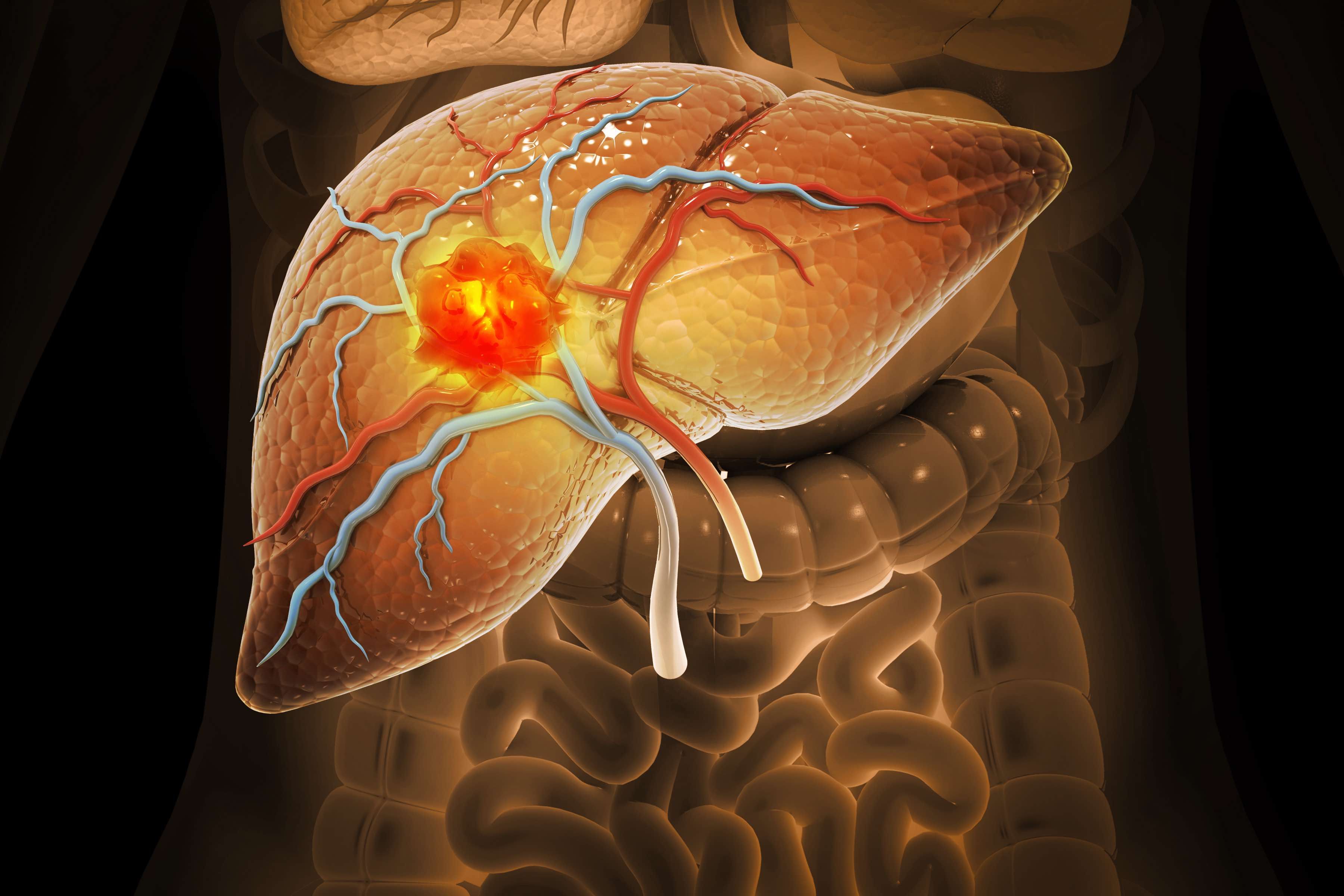- Center on Health Equity & Access
- Clinical
- Health Care Cost
- Health Care Delivery
- Insurance
- Policy
- Technology
- Value-Based Care
Camrelizumab Plus Rivoceranib Improves Survival vs Standard First-Line Care for HCC
In the final overall survival analysis of the phase 3 CARES-310 trial, frontline camrelizumab plus rivoceranib continued to show clinically meaningful survival benefits vs sorafenib for hepatocellular carcinoma (HCC).
First-line camrelizumab plus rivoceranib continued to demonstrate a clinically meaningful overall survival (OS) benefit compared with sorafenib (Nexavar) for patients with advanced, unresectable hepatocellular carcinoma (HCC) in the final analysis of the phase 3 CARES-310 trial (NCT03764293).1 The findings were presented at the 2024 American Society of Clinical Oncology Annual Meeting.
In the CARES-310 trial, a total of 543 patients with unresectable HCC who were naïve to systemic treatment were randomized to receive either camrelizumab plus rivoceranib (n = 272) or sorafenib (n = 271), which is the current first-line standard of care. At a median follow-up of 22.1 months in the combination therapy cohort and 14.9 months in the sorafenib cohort, the median OS was 23.8 months (95% CI, 20.6-27.2) in the combination therapy arm compared with 15.2 months (95% CI, 13.2-18.5) in the sorafenib arm (HR, 0.64; 95% CI, 0.52-0.79; 1-sided P < .0001).
Camrelizumab plus rivoceranib showed a clinically meaningful OS benefit compared with sorafenib for unresectable hepatocellular carcinoma | Image credit: Crystal light - stock.adobe.com

The OS rate was 49.0% in the camrelizumab plus rivoceranib cohort vs 36.2% in the sorafenib cohort at 24 months of follow-up, and at 36 months, OS rates were 37.7% and 24.8%, respectively. OS benefits were consistent across most subgroups, including race, geographic region, and HCC etiology. The combination therapy cohort also experienced longer progression-free survival (PFS) at 5.6 months (95% CI, 5.5-7.4) vs 3.7 months (95% CI, 3.1-3.7) in the sorafenib arm (HR, 0.54; 95% CI, 0.44-0.67; P < .0001).
“The phase 3 CARES-310 trial is the first to demonstrate significant PFS and OS benefits with immunotherapy plus an anti-angiogenic tyrosine kinase inhibitor (TKI) over standard TKI as first-line treatment for unresectable HCC,” the authors wrote. Camrelizumab is an anti–PD-1 antibody, and rivoceranib is a VEGFR2-targeted TKI.
The median overall response rate in the combination therapy arm was 26.8% vs 5.9% in the sorafenib cohort, and the median durations of response were 17.5 months and 9.2 months, respectively. There were no new safety signals in the final OS analysis compared with earlier studies.
Common treatment-related adverse events (TRAEs) included hypertension, increased aspartate aminotransferase, palmar-plantar erythrodysaesthesia syndrome, increased blood bilirubin, decreased platelet count, diarrhea, and increased gamma-glutamyl transferase. Decreased neutrophil count, decreased white blood cell count, and fatigue also occurred. TRAEs led to camrelizumab discontinuation in 17.6% of patients, rivoceranib in 16.9% of patients, and of both agents in 4.4% of the combination arm. In the sorafenib arm, 4.8% of patients discontinued treatment due to TRAEs.
The primary PFS analysis and interim OS analysis both showed significant improvements with camrelizumab plus rivoceranib vs sorafenib, and the new analysis added an additional 16 months of follow-up to the previous data. The updated results further confirmed the combination therapy’s favorable benefit-to-risk profile and supported the use of camrelizumab plus rivoceranib as a novel first-line therapy for unresectable HCC, the authors concluded.
“At the protocol-specified final analysis, camrelizumab plus rivoceranib continued to show clinically meaningful survival improvement compared with sorafenib, with manageable safety,” the authors wrote.
The FDA accepted a new drug application for camrelizumab in combination with rivoceranib in July 2023, which was supported by prior CARES-310 data.2 However, the agency issued a complete response letter in May 2024, citing deficiencies related to the manufacturing process.3
References
1. Vogel A, Chan SL, GU S, et al. Camrelizumab plus rivoceranib vs sorafenib as first-line therapy for unresectable hepatocellular carcinoma: final overall survival analysis of the phase 3 CARES-310 study. J Clin Oncol. 2024;42(suppl 16):4110. doi:10.1200/JCO.2024.42.16_suppl.4110
2. Elevar Therapeutics announces FDA acceptance for filing of new drug application for rivoceranib in combination with camrelizumab as a first-line treatment for unresectable hepatocellular carcinoma. News release. Elevar Therapeutics. July 17, 2023. Accessed June 4, 2024. https://elevartherapeutics.com/2023/07/17/elevar-therapeutics-announces-fda-acceptance-for-filing-of-new-drug-application-for-rivoceranib-in-combination-with-camrelizumab-as-a-first-line-treatment-for-unresectable-hepatocellular-carcinoma/
3. Jae-hyuk P. HLB fails to win US FDA's approval for rivoceranib liver cancer drug. The Korea Times. Updated May 18, 2024. Accessed June 4, 2024. https://www.koreatimes.co.kr/www/nation/2024/06/129_374825.html
